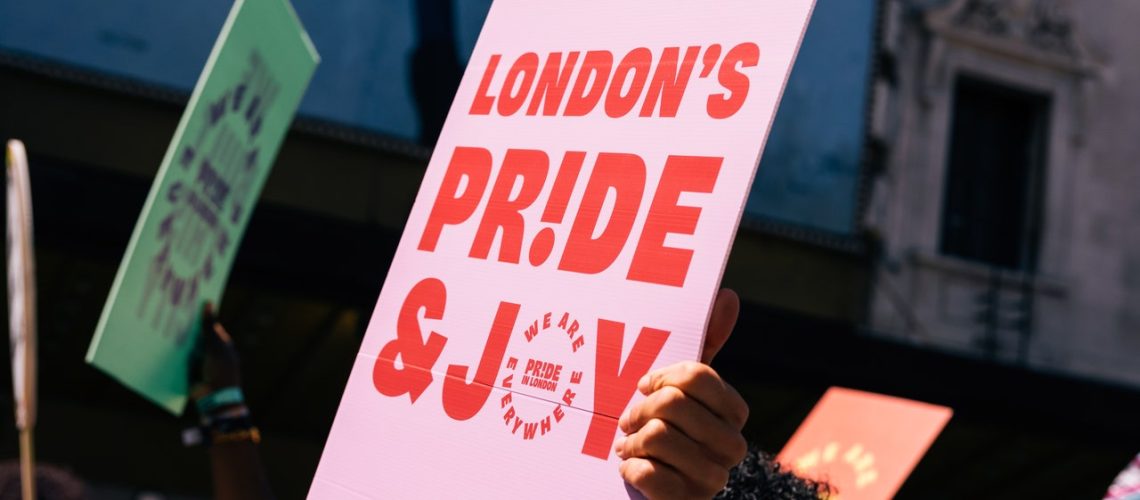Community events are just one piece of the Pride puzzle. Corporate gigs are another, offering talent higher fees and more exposure, but these too have dried up. “They’re taking all the money away. But not just Pride sponsorships. Companies are reducing the budgets given to employee resource groups and networks, so there’s not enough to pay us with.”
LGBTQIA+ performers who would usually find themselves booked and busy at this time of year have a sneaking suspicion as to why: April’s Supreme Court decision. The controversial ruling, which states that the legal definition of a woman in 2010’s Equality Act excludes transgender women, has sewn further division in a country that is already deeply politically fractured.
“It’s a risk for these companies to stand with the community at the moment because of the rhetoric around gender essentialism in the media,” drag artist Nana Arthole says. “If they want to remain neutral within the public image, promoting Pride would make it seem as though they’re taking a side.”
In the past, the Bristolian has been no stranger to Pride-themed coffee mornings or office bingo. But they argue that too many brands that once claimed to stand firmly with LGBTQIA+ people are retreating. “When we could use their support and their money, they’re taking it back and playing into the fearmongering. They’re not standing with us because it’s no longer convenient, even when members of our community are having their rights taken away.”
One trans DJ and influencer I speak to, Hazel Rose, hasn’t had a single collaboration or work opportunity this month. This year, she says, it’s not profitable for companies to be engaging with the community as they did before: “It’s proof that they were only involved to make money and polish their reputation from the start.”
The commercialisation of Pride and the involvement of organisations isn’t a new debate. Pride’s origins are rooted in radical protest, which, historically, multi-million-dollar global conglomerates aren’t exactly favourably aligned with. For some, the intentions behind the stale cupcakes, useless rainbow merch and a presence at street parades were always perceived to be a ploy to benefit brand reputation and profits, rather than an effort to actually improve the livelihoods of LGBTQIA+ people.
Soon after the ruling, many were quick to call out Barclays. The bank’s website proudly describes its longstanding commitment to the LGBTQIA+ community (it has formerly sponsored Pride in London and Liverpool Pride events), but headlines were made when it became one of the first organisations in the UK to announce it was banning trans women from female toilets in its buildings after the decision. Petitions were signed, Liverpool Pride eventually dropped them as a sponsor, and now the parade is no more.















